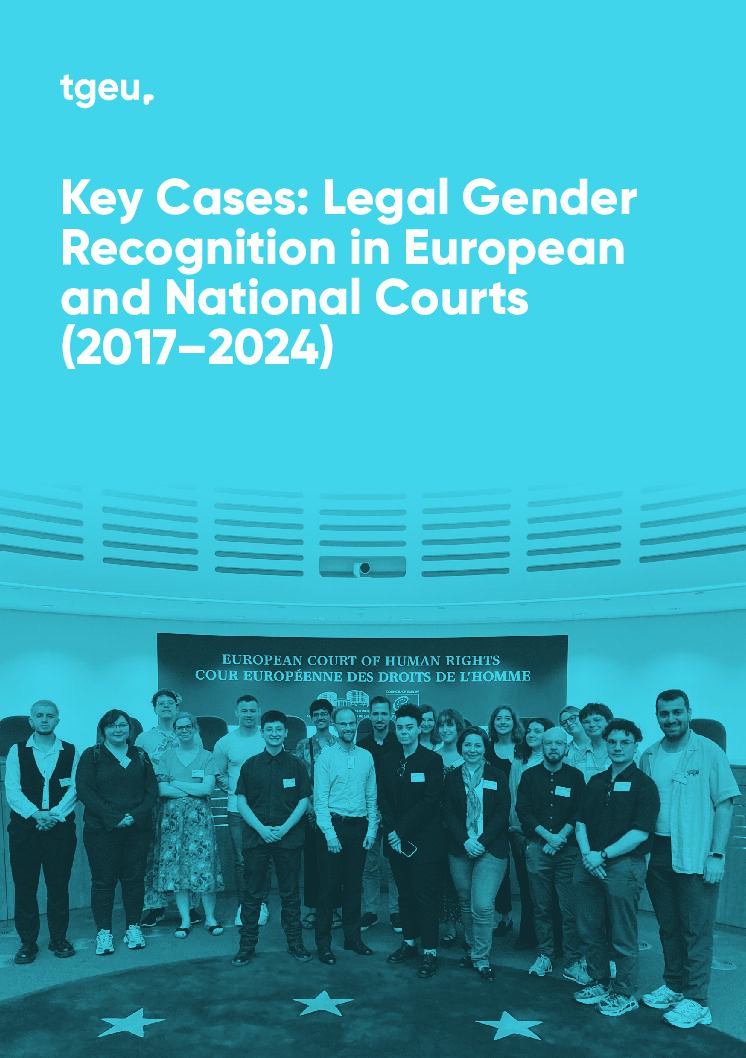Court victories confirm: gender self-determination is a human right

TGEU publishes a new jurisprudence toolkit covering key legal gender recognition cases from 2017 to 2024.
Key message
European and international courts are clear: the right to gender self-determination is a fundamental human right. Medical coercion, binary-only recognition, and legal uncertainty are not compatible with human dignity, privacy, and equality.
Why this new toolkit?
Legal gender recognition is evolving rapidly across Europe and beyond. Yet, many states still impose abusive requirements like forced sterilisation, psychiatric diagnosis, or binary-only options. Others delay or deny recognition entirely, leaving trans, non-binary, and intersex people in legal limbo.
TGEU’s new key cases report offers a clear and accessible overview of 50 pivotal decisions by European, national, and international courts. These cases set vital legal precedents that advance trans rights, dismantle discriminatory practices, and affirm the principle of self-determination.
What’s in this toolkit?
The report tracks groundbreaking rulings from courts in Germany, Austria, Belgium, Hungary, Turkey, the UK, and beyond — plus key decisions by the European Court of Human Rights (ECtHR), Court of Justice of the European Union (CJEU), and the UN Human Rights Committee.
The toolkit includes decisions on:
- The right to gender self-determination
- Recognition of non-binary identities and x-markers
- Parental rights of trans people
- Access to legal gender recognition for minors and migrants
- Eliminating medical and divorce requirements
- Mutual recognition of gender across borders
What do the courts say?
The jurisprudence is strong and consistent:
- Legal gender recognition is a matter of human dignity and private life
- Surgical or medical requirements violate fundamental rights
- States must ensure quick, transparent, and accessible procedures
- Non-binary and intersex people must not be excluded from legal recognition
- Trans parents’ rights must be respected, and no one should be forced to choose between their identity and their family
- Courts are increasingly rejecting arguments based on public order, legal security, or administrative inconvenience when they undermine self-determination
Why it matters now
As anti-trans rhetoric intensifies and some governments roll back trans rights, fact-based legal resources like this toolkit are crucial. They help lawyers, activists, and policymakers defend hard-won rights — and push for laws that reflect lived realities and human rights standards.
This toolkit is more than a collection of cases — it’s a roadmap for advancing equality, autonomy, and legal recognition for all.